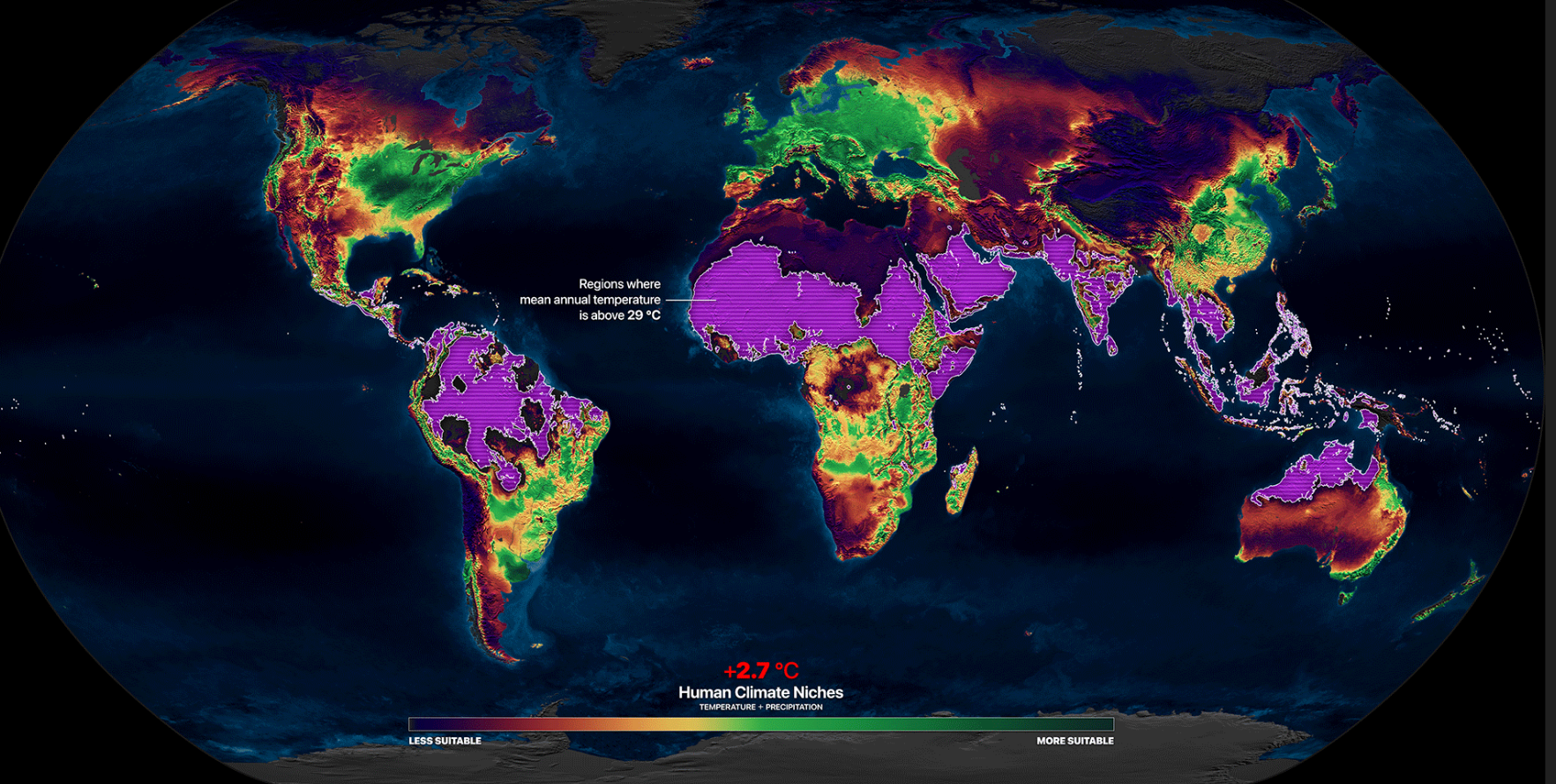Current climate policies will leave more than a fifth of humanity exposed to dangerously hot temperatures by 2100, unprecedented new research suggests.
The paper, published on Monday and co-authored by academics from around the world, examines the “human climate niche” – the temperature range in which humans have lived and flourished throughout history – and how warming could see billions of people falling outside of it.
The researchers from University of Exeter’s Global Systems Institute, alongside the Earth Commission and Nanjing University, argue that current legally binding climate policies are estimated to produce an average temperature rise of 2.7C by 2100.
They said this could leave two billion people – 22% of the projected end-of-century population – exposed to dangerous heat, defined as an average annual temperature of 29°C or higher.

At these high temperatures, water resources could become strained, mortality could increase, economic productivity could decrease, animals and crops could no longer flourish, and large numbers of people may migrate.
However, the forecasts also show that limiting warming to 1.5C in line with the Paris Climate Agreement would leave just 5% outside the niche by 2100, highlighting “the importance of decisive action” to limit the human costs and inequities of climate change.
Professor Tim Lenton, director of the Global Systems Institute, said that many areas of the world will “go up to unprecedented temperatures that nobody experienced in the historical climate” when warming hits 2.7C.
More than 600 million people in India and 300 million people in Nigeria could be exposed to dangerous temperatures by 2100, as well as areas of Indonesia, Brazil, the Philippines, Australia, and almost 100% of Burkina Faso and Mali.
The research found that under the worst-case scenarios of 3.6C or even 4.4C global warming, half of the world’s population could be left outside the climate niche, posing an “existential risk”.
Prof Lenton said limiting warming to 1.5C makes a “profound difference” to forecasts, with those exposed to dangerous heat decreasing from more than two billion people to a little over 400 million people.
“The costs of global warming are often expressed in financial terms, but our study highlights the phenomenal human cost of failing to tackle the climate emergency,” he said.
“For every 0.1C of warming above present levels, about 140 million more people will be exposed to dangerous heat.
“This reveals both the scale of the problem and the importance of decisive action to reduce carbon emissions.
“Limiting global warming to 1.5C rather than 2.7C would mean five times fewer people in 2100 being exposed to dangerous heat.”
The researchers said their paper highlights the inequity of climate crisis as the people least responsible for greenhouse emissions could face the most the exposure to dangerous heat.
They also found that the lifetime emissions of 3.5 average global citizens today – or just 1.2 US citizens – expose one future person to dangerous heat.
“We were triggered by the fact that the economic costs of carbon emissions hardly reflect the impact on human wellbeing,” said Professor Marten Scheffer, of Wageningen University, who co-authored the report.
“Our calculations now help bridging this gap and should stimulate asking new, unorthodox questions about justice.”
Prof Scheffer said that migration would be a “very natural adaptation” to the changing world.
He said: “It’s not like the earth is becoming unliveable, it’s just the best place on earth for humans is changing and that is a thing that happens to other species and a normal response to that is to move to the better places.”
But he added that migration will be part of the “human cost” of climate change. “No one wants to move away from the place they are born and it will be a cost for everyone in the world because it has to be accommodated in some way,” he said.
“It opens up a whole discussion about what is the best way for humanity to go ahead.
“One is to put the breaks on global warming but as you can see from the results, it is likely we will have to reaccommodate people on the globe.”
You may also like: Viral video shows how public being ripped off by ‘pitiful’ Shell tax contribution

